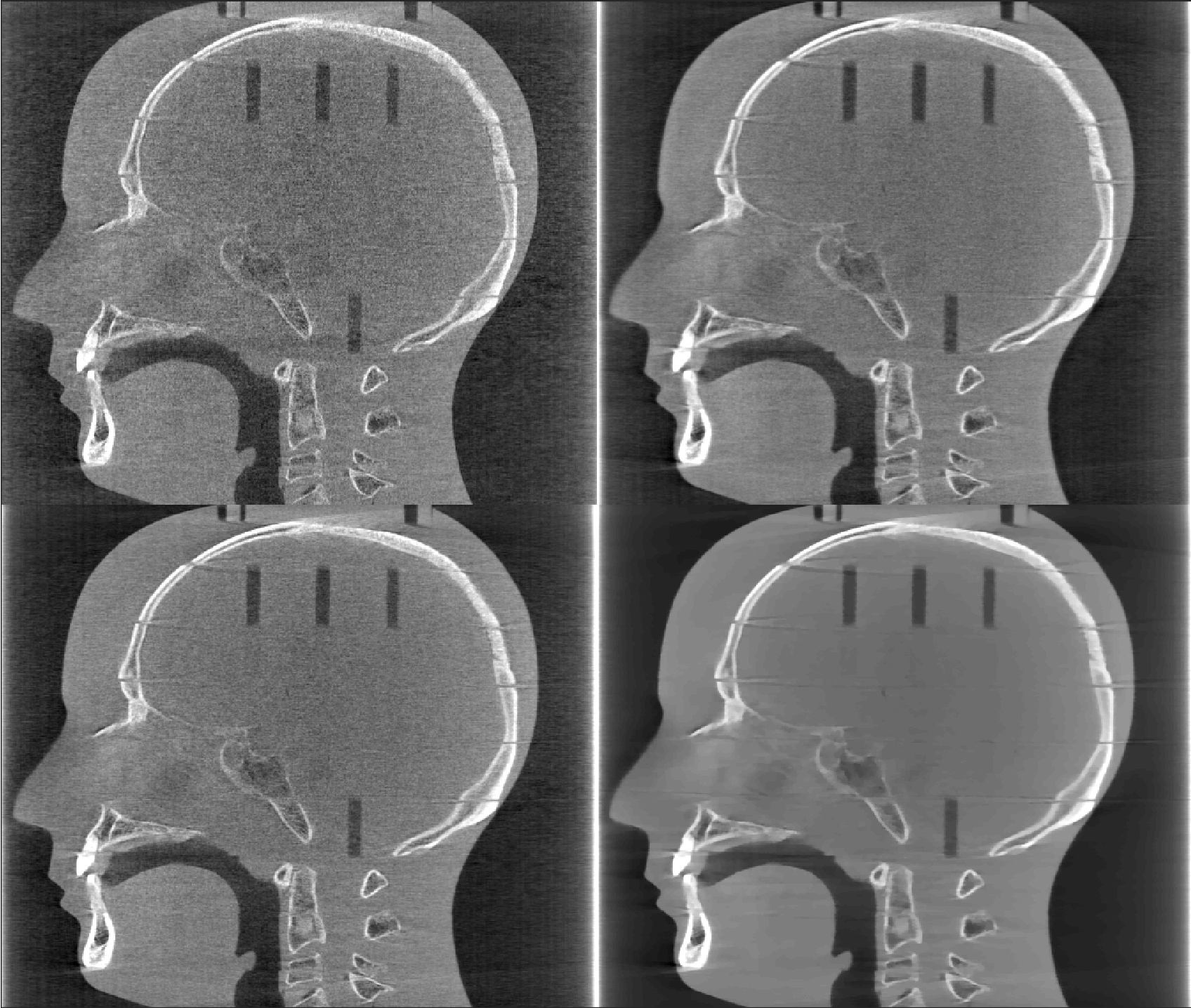Arbitrarily large iterative tomographic reconstruction on multiple GPUs using the TIGRE toolbox
Tomographic image sizes keep increasing over time and while the GPUs that compute the tomographic reconstruction are also increasing in memory size, they are not doing so fast enough to reconstruct the largest datasets. This problem is often solved by reconstructing data in large clusters of GPUs with enough devices to fit the measured X-ray projections and reconstructed volume. Often this requires tens of GPUs, which is a very economically expensive solution. Access to single-node machines designed to reconstruct using just one or a few GPUs is more common in the field, but current software does not allow iterative reconstruction of volumes that do not fit in those GPUs. In this work, we propose a strategy to execute efficiently the required operations for iterative reconstruction for arbitrarily large images with any number of GPUs with arbitrarily small memories in a single node. Strategies for both the forward and backprojection operators are presented, along with two regularization approaches that are easily generalized to other projection types or regularizers. The proposed improvement also accelerates reconstruction of smaller images on single or multiple GPUs, providing faster code for time-critical medical applications. The resulting algorithm has been added to the TIGRE toolbox, a repository for iterative reconstruction algorithms for general CT, but this memory-saving and problem-splitting strategy can be easily adapted for any other GPU-based CT code.
PDF Abstract